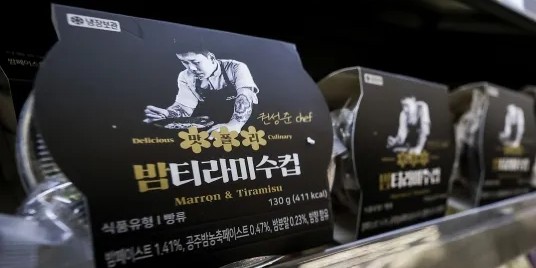
In recent years, Korean convenience stores have moved beyond simply offering ready-to-eat meals. They are now evolving into innovative and vibrant culinary spaces fueled by creative and bold experimentation. At the core of this transformation is a growing number of collaborations with professional chefs. Partnerships between convenience store brands and culinary experts, once considered a novelty, have now become a core strategy in product development.
From quick meals to culinary collaborations
Major convenience store chains such as GS25 and CU are teaming up with a diverse group of culinary figures, including YouTube chefs and professional restaurant chefs. Together, they are launching premium lunchboxes, frozen meals, and desserts. These items are more than just new ingredient combinations. They offer unique flavors and concepts that set them apart from typical convenience store food. For example, CU partnered with the chef known as Napoli Mafia (Kwon Seong-jun), the winner of Netflix’s “Black and White Chef” competition show, to release a dessert called Chestnut Tiramisu Cup, which sold out shortly after it hit the shelves. GS25 also launched the “Convenient Spoon Series,” featuring dishes inspired by Korean, Chinese, and Japanese cuisine, all developed by chefs from the same show.
The growing popularity of these collaborations has led to a shift in how consumers view convenience store food, which is now considered not just a quick and cheap option, but an exciting culinary experience. This change is particularly evident in the increasing number of customers who eagerly anticipate the release of new chef-branded products. These items are often seen as exclusive, with some products selling out within hours, further fueling the demand for high-quality, chef-driven convenience store food. The products also contribute to a sense of novelty, making convenience stores more than just places to grab a snack, but destinations for unique and innovative food offerings. As a result, the relationship between consumers and convenience store brands has evolved, with customers now looking for authenticity and creativity in their food choices.
Taste like a restaurant: The new face of convenience food
One of the most noticeable changes is in how consumers perceive convenience store food. It used to be seen as a cheap and quick option to fill a hunger gap. Now, it is considered a delicious and satisfying experience. Convenience stores are increasingly offering meals that match restaurant standards in both taste and presentation. Social media platforms are filled with tasting reviews and excited reactions. Some even say, “It tastes better than a restaurant.” Chef-branded lunchboxes are emerging as brands in their own right. Consumers are not just purchasing food; they are consuming a culinary experience and a story.
This shift is closely related to technological advancements. Improved freezing methods, advanced product planning, and real-time customer feedback systems help bring the chef’s original flavor and concept to life. Marketing efforts aimed at Millennials and Generation Z have also played a key role. Collaborations with celebrity chefs and food influencers naturally attract fans, turning these products into trending items.
Today, convenience store food is no longer just about being affordable. It has become an accessible form of gourmet dining that delivers premium taste at a reasonable price. What was once seen as mundane has transformed into a uniquely Korean experience worth seeking out. For international visitors and exchange students in Korea, convenience stores offer more than just a quick meal. They serve as a window into the country’s fast- moving and trend-driven food culture. In every neatly packaged meal lies a glimpse of the nation’s evolving tastes, creative spirit, and the everyday innovations shaping modern Korean food culture.

